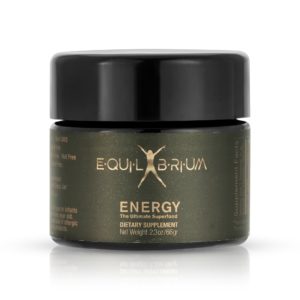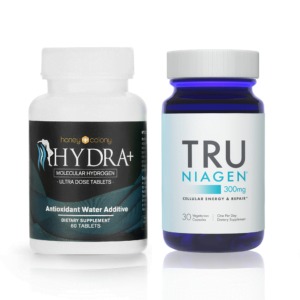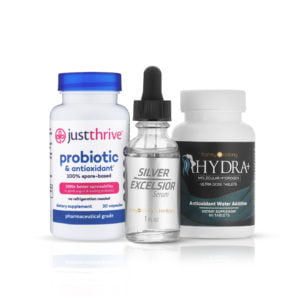The alkaline diet has been used for decades as part of integrative and alternative treatments other age-related diseases. Here, foods that are thought to create an alkaline environment in the body are encouraged, and acid-forming foods are minimized.
This approach has often been misunderstood because of the tightly-controlled pH in certain areas of the body. One of these areas is the bloodstream. However, recently published research shows that prioritizing alkalizing foods may boost breast cancer survival.
How Alkalizing Foods Affect Breast Cancer Mortality
In this new study, researchers analyzed the diets and smoking history of 2,950 early-stage breast cancer survivors. Using an average study period of 7.3 years, they found that both smoking and an acid-forming diet were linked to higher mortality rates.
Women who were in the top third for acidity scores and smoked for over 15 years had a 3.2 times higher risk of dying. Acid-forming diets were only associated with breast cancer recurrence among women who smoked. Being in the top quarter was related to a 28-45 percent higher recurrence rate, depending on the acidity measurement used. Smoking and being in the top quarter for dietary acidity was linked to a 51-81 percent higher all-cause mortality risk. In never-smokers, this was only 10-30 percent larger.
The results mean that diets rich in alkalizing foods are especially helpful if you used to smoke. They also underline the importance of quitting if you still do. Thirty-five to 40 percent of breast cancer survivors have a history of smoking. Furthermore, former high-intensity smokers have a 50 percent higher risk of death compared to never-smokers. Living with these higher risks is not the least bit desirable.
The benefits of quitting start to appear in one hour, although it takes 10-20 years for mortality risks from all smoking-related illnesses to return to normal. Just don’t rely on vaping, as the flavoring chemicals in vape fluids can be toxic.
What Is The Alkaline Diet?
The alkaline diet is rich in green vegetables and mostly plant-based, minimizing meat, dairy, sugar, and gluten. Fruit and plant sources of protein are consumed in moderation, while fresh vegetables are encouraged. According to its proponents, 80 percent of our diets should be made of alkalizing foods or neutral ingredients, with a 20 percent acid-forming allowance. The alkaline’s diet aim is to restore the intracellular pH to 7.3-7.41, and thus improve health and longevity.
The alkaline diet originated from Otto Warburg’s work on metabolism, which uncovered many of the then-mysteries surrounding how cells produce energy. It also described the main trigger for cancer progression as glucose fermentation. When tumor cells begin to ferment glucose for energy as compensation for poor oxygen levels, it creates an acidic environment.
The Gerson Therapy: The First Alkalizing Diet?
One of the most well-known alternative cancer protocols, the Gerson therapy, features an alkaline-forming diet. It is Lacto-vegetarian, low-sodium, high-potassium, initially low in protein, and includes several daily servings of fresh fruit and vegetable juices.
A 1990s study of patients with melanoma found that all with stage I and II disease survived for at least five years, compared to an average of 79 percent. Seventy percent with stage III melanoma survived to this point, as opposed to 41 percent from a conventional clinic. As for stage IVA disease, 39 percent lived to five years compared to six percent of conventionally-treated patients.
The Gerson therapy can be used alongside mainstream medical treatments too, although its emphasis on detoxification and tissue protection may seem at odds with chemotherapy. However, improved clearing of tumor debris and immune system function could complement newer immunotherapies well.
Animal Products And Cancer
Evidence supporting plant-based diets may also be indirect evidence for the alkalizing diet. Processed animal products are some of the most acid-forming foods. A large analysis of 15 studies encompassing 1.2 million people found that frequent consumption of processed meats, such as bacon and sausages, was linked to a nine percent higher risk of breast cancer. The risks of processed meats have even gotten them banned from New York schools.
As for dairy, an eight-year study of 52,795 American women found that drinking two to three cups per day of dairy milk may increase breast cancer risk by 80 percent! Conventional dairy contains higher levels of estrogenic compounds, which may fuel estrogen receptor-positive tumors. Yogurt and cheese showed no harmful effects, and switching out dairy for soy milk was linked to a 32 percent lower risk.
However, if you want to start drinking soy milk, search for organic brands. Soy contains some of the highest levels of glyphosate, which alters DNA function and contributes to conditions ranging from ADHD to celiac disease. Organic soy also has more zinc and protein. However, soy also contains phytoestrogens, and their effects on estrogen-dependent breast cancer risk are inconclusive. If you are concerned about soy phytoestrogens but want to ditch dairy, there are also nut, coconut, and oat milks on the market.
Acidic Foods And Age-Related Diseases
In previous research, acid-forming diets have been linked with other age-related diseases, including hypertension, diabetes, hip fractures, and kidney disease. All have harmful effects on longevity and quality of life. Additionally, animal studies have shown that acid diets increase the development and severity of cancer. On the other hand, plant-based diets are associated with a 25 percent drop in all-cause mortality and a 32 percent lower rate of cardiovascular disease deaths.
What’s more, high consumption of acidic foods has been associated with weaker bones. A small study found that an acid-forming diet increased urinary calcium loss by 74 percent, compared to an alkalizing diet. Levels of the marker C-telopeptide were also elevated, meaning the calcium was most likely leached from their bones.
Other research has found higher rates of hip fracture among women eating the most animal foods, and lower risks with higher plant food consumption. While much of these are population studies only designed to detect correlations, part of this effect may also be from acid-forming foods reducing growth hormone (HGH) production.
Getting Started On An Alkaline Diet
If you’d like to transition to an alkaline diet, there are things you can do now without immediately overhauling your pantry.
Incorporating Simple Tips
Drinking lemon or lime juice in water is one simple trick. These fruits have an alkalizing effect in the body. Just be mindful of dental hygiene because of their citric acid content, as it may weaken tooth enamel.
Green drinks and ingredients with high chlorophyll content, such as spirulina, chlorella, and wheatgrass, are powerful alkalizing foods too. Coconut juices, milk, and cream can be tasty additions to your diet too.
Going organic and sustainably produced where possible is another important aspect of alkalizing diets, as it helps to reduce the toxic burden on our bodies and improve soil mineral content. When going all the way, enlisting the help of a functional medicine practitioner or health coach helps with avoiding nutrient deficiencies, identifying your needs, and staying on track.
Gathering Recipes
Collecting recipes before you get started can also be useful in staying motivated and preparing shopping lists. One alkalizing recipe is this arugula and sprouts salad by Deborah Oke. This salad features ingredients including arugula, sundried tomatoes, olives, and avocado; is spiced with turmeric, chili, and garlic; and dressed with tahini and lemon juice.
Another interesting one is “spaghetti” with beetballs, from the Gerson Therapy book. The spaghetti substitute is simply spaghetti squash, baked for two hours, or steamed for one. When cooked, it easily comes out in strands.
To make the beetballs:
- Combine one grated beet with three or four grated carrots, one small minced onion, and two teaspoons of minced parsley.
For the sauce:
- Cook six to eight large tomatoes at a low setting for 30-35 minutes.
- Keep the juice for a thicker sauce, but remove their skins and seeds.
- Add diced vegetables: an onion, a green pepper, two celery stalks (or one fennel bulb), and two zucchini.
- Add three to five minced garlic cloves; four teaspoons of fresh parsley; half a teaspoon of fennel seeds; and a pinch each of marjoram, rosemary, sage, and thyme.
- Stew your sauce over a low setting for one hour, or until they’re done to your tastes.
The recent study on breast cancer suggests that diets high in alkalizing foods, possibly including the Gerson therapy, could be a helpful addition to cancer treatment. While more formal clinical trials are needed, it adds to the evidence in support of plant-based, green-vegetable rich diets. You also don’t have to have cancer to benefit, as they boost overall health and protect against other age-related diseases too.

Alexandra Preston is an Australian naturopath, passionate about empowering others to take charge of their health and healing the planet. Her special area of interest in natural health is antiaging; she also loves the beach and is a semi-professional dancer.
Submit your story or essay to Buzzworthy Blogs.
-
 Equilibrium Energy Superfood 2.3 oz$59.45 — or subscribe and save 5%Rated 4.91 out of 5 based on 11 customer ratings
Equilibrium Energy Superfood 2.3 oz$59.45 — or subscribe and save 5%Rated 4.91 out of 5 based on 11 customer ratings -
Sale Product on sale
 Optimized Cellular Health Bundle
Optimized Cellular Health Bundle$113.74Original price was: $113.74.$106.74Current price is: $106.74. — available on subscription from$112.99Original price was: $112.99.$100.00Current price is: $100.00. / monthRated 5.00 out of 5 based on 3 customer ratings -
Sale Product on sale
 Optimized Gut-Brain Axis Bundle
Optimized Gut-Brain Axis Bundle$195.72Original price was: $195.72.$188.25Current price is: $188.25. — or subscribe and save 5%Rated 5.00 out of 5 based on 2 customer ratings




1 thought on “Can Alkalizing Foods Help Fight Breast Cancer And Other Age-Related Diseases?”
If you want only to try to play casino, I can help you. You don’t need any deposit. Just go to beste casino bonus and get you free start.